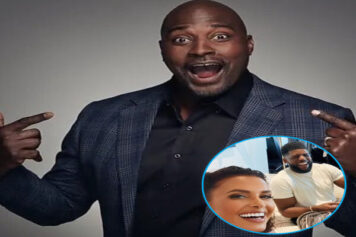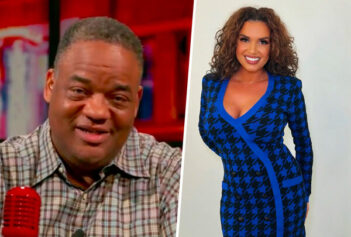Buck O’Neil was playing first base for the Kansas City Monarchs, and Bob Motley, in his black uniform, was stationed nearby to umpire the bases. On a popup, Motley signaled an infield fly. The easy-going Buck disagreed. He pitched a fit until he stepped across the line.
“He said the magic word,” Motley said.
Umpires have always had a creed. They’ll give a ballplayer or manager leeway to kick up a fuss on a close call, as Buck did on the play, at first. But there are certain profane words a ballplayer can never say to an umpire and then expect to stick around to see the game’s last out.
Buck said one of those words; Buck got ejected.
In the life of a Major League umpire, calls like that happen often. The ump then packs up his gear, goes back to his hotel room and doesn’t see the ballplayer again until the next day’s game. But in the Negro Leagues, umpires like Motley traveled from city to city on the same bus as the ballplayers, ate at the same restaurants as the ballplayers and, as in the case with Buck and Motley, shared the same hotel room.
“After the game, I had no place to stay,” Motley said. “Buck, he wasn’t mad; he didn’t carry no grudge. He said, ‘Well, Motley, you can stay in my room.’ I said, ‘OK.’”
Buck told Motley to go the hotel and ask for the room key. He got the key and went to the room, but Buck wasn’t there yet. Motley undressed and got on his side of the bed, making sure Buck had enough room on his side of the bed. Unable to sleep, he waited for Buck to show up.
Buck came in later, changed and went to sleep.
“The next morning I got up and got on outta there before he got up,” Motley said.
“I wanted to make a career as a Major League umpire,” said Motley who had been a not-so-good pitcher growing up. “I knew I couldn’t play, so the next step, if you wanted to be in the game, you had to be an umpire.”
Umpiring in the big leagues? A black man?
It was the kind of career choice that seemed far-fetched for Motley, who had grown up in Alabama in the 1920s and 1930s. Segregation had deep roots in the South—hell, in the North as well. And no black ballplayer had ever stepped foot on a Major League field with white players since the late 1890s. A black umpire? No history of a single one in the big leagues.
Yet, that fact didn’t derail Motley’s ambitions. He picked up a taste for umpiring after enlisting in the military for World War II in 1943. He called pick-up games while stationed in Japan, and once he returned to the States, he had already gotten hooked on umpiring.
His experience in those pick-up games created opportunities to call games in the Big 8 Conference. While working those college games, Motley tried to catch on with the Negro Leagues. He would hang around the Kansas City Monarchs ballpark and ask the umpires who he should talk to about a job.
For almost two years, they gave him the runaround. But if people know anything about dreamers like Bob Motley, it is this: They are persistent.
“He had to have persistence—persistence and the desire to make the most of a bad situation,” said his son, Byron, a filmmaker, historian and author.
Hanging around the ballpark got Bob Motley his break. The Monarchs needed someone to umpire third base one day in 1947, and the umpiring crew, all former Negro League ballplayers, remembered Motley. Crew chief Frank Duncan, one of the toughest defensive catchers ever, decided to give Motley a shot.
It was all he needed. J.D. Martin, the league president, saw Motley’s work and said, “You’re a pretty good umpire. How’d you like to travel in the league?”
Motley didn’t hesitate to tell Martin yes. He took the $300 a month that Martin offered and joined the league’s crew of umpires.
Bob Motley spent the next 11 seasons calling strikes and balls. He was behind the plate to witness some of the greatest hitters in the history of the game. Motley watched Willie Mays, Ernie Banks and Hank Aaron break into pro ball; he was there as Monte Irvin and Willard Brown were transitioning from black baseball to the big leagues; and he was lucky enough, he said, to call games with Satchel Paige on the pitcher’s mound.
No one who saw Motley on the field could forget him. His style was purely his: colorful, firm and decisive. Still, he was an umpire, and umpires never have had much of a fan club, particularly on close plays.
“Kill the umpire” became a popular refrain that Motley heard when that close play didn’t go the home team’s way. He loved to make those calls.
“A close play just got into my system,” he said. “I’d jump over a player’s head to call him out or safe. It just got into me, a close play.”
He brooked no nonsense, though. A ballplayer could scream, cuss, fuss, holler or display all sort of crazy emotions, but none of it affected Motley.
“When he said that was the call, that was the call,” said Byron Motley, whose book Ruling Over the Monarchs, Giants & Stars: Umpiring in the Negro Leagues & Beyond chronicled his father’s life in baseball. “He stood his ground. He had to; he couldn’t let those ballplayers push him around.”
No umpire can. They must call the game by the book, even when a peculiar situation crops up, as it did one day while Motley was behind home plate and Satchel, the best pitcher Motley ever saw, was on the hill.
“He asked, ‘Ump, I’d like to call in all my outfielders,’” said Motley, a bit of his Alabama roots still in his voice. “I said, ‘Why’s that?’ “He said, ‘’Cause I wanna strike out the side.’”
Motley told Satchel that the rulebook said his outfielders couldn’t leave the field, and as long as they stayed on the playing field, Satchel could position them wher he wanted.
“He said, ‘OK, ump,’” Motley said.
So Satchel called in his outfielders who remained on the playing field as he worked, mixing his fastball with pinpoint control.
“I didn’t give him nothin’,” Motley said. “And he struck out the side.”
Calling balls and strikes for a Hall-of-Famer like Satchel was as close to the big leagues as a black umpire could get in those days. When integration was killing the Negro Leagues in the late ’50s, Motley tried to break into the Majors. He went to umpire school in Florida—twice. Though he finished No. 1 in his class both times, he got no offer the first year, and the best he was offered the second year was an assignment in the Pacific Coast League.
He umpired there for a few seasons, toiling alongside younger umpires as his Major League dream died a slow death. But it died absent the bitterness that might have driven lesser men insane.
Motley just rolled seamlessly into a career with an automaker, hanging around baseball as a sandlot umpire in Kansas City and kept keeping the history of black baseball alive as one of the founders of the Negro Leagues Baseball Museum.
In his mind, Motley knew he was capable of umpiring in the Majors, and he still wishes he had gotten that chance. He didn’t, which is the hardboiled reality that men like him have had to face for growing up a generation too soon.
“As far as carrying around a grudge or being disappointed, not in the slightest,” Byron Motley said. “If he had, he certainly wouldn’t have lived to 90 years old. The bitterness would have ate him up inside."



